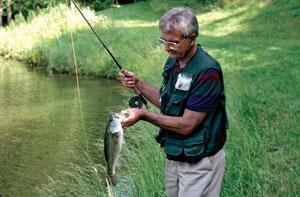
Recreation
Kentucky Afield Outdoors: Who needs a fishing license?
A Kentucky farm owner invites his brother, nieces and nephews from the city for an afternoon of fishing ... Read more

A Kentucky farm owner invites his brother, nieces and nephews from the city for an afternoon of fishing ... Read more